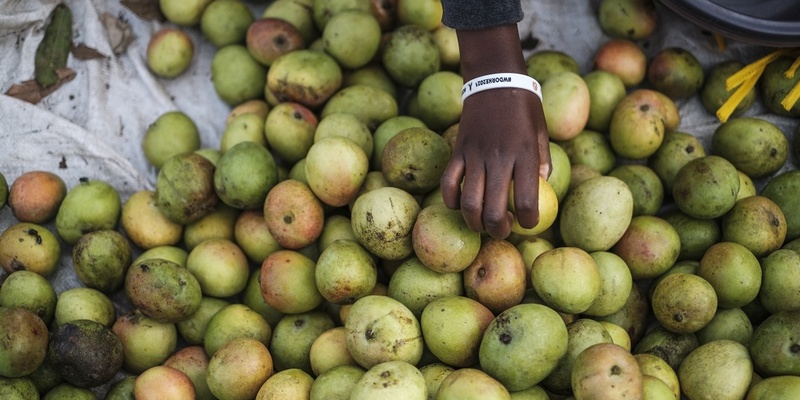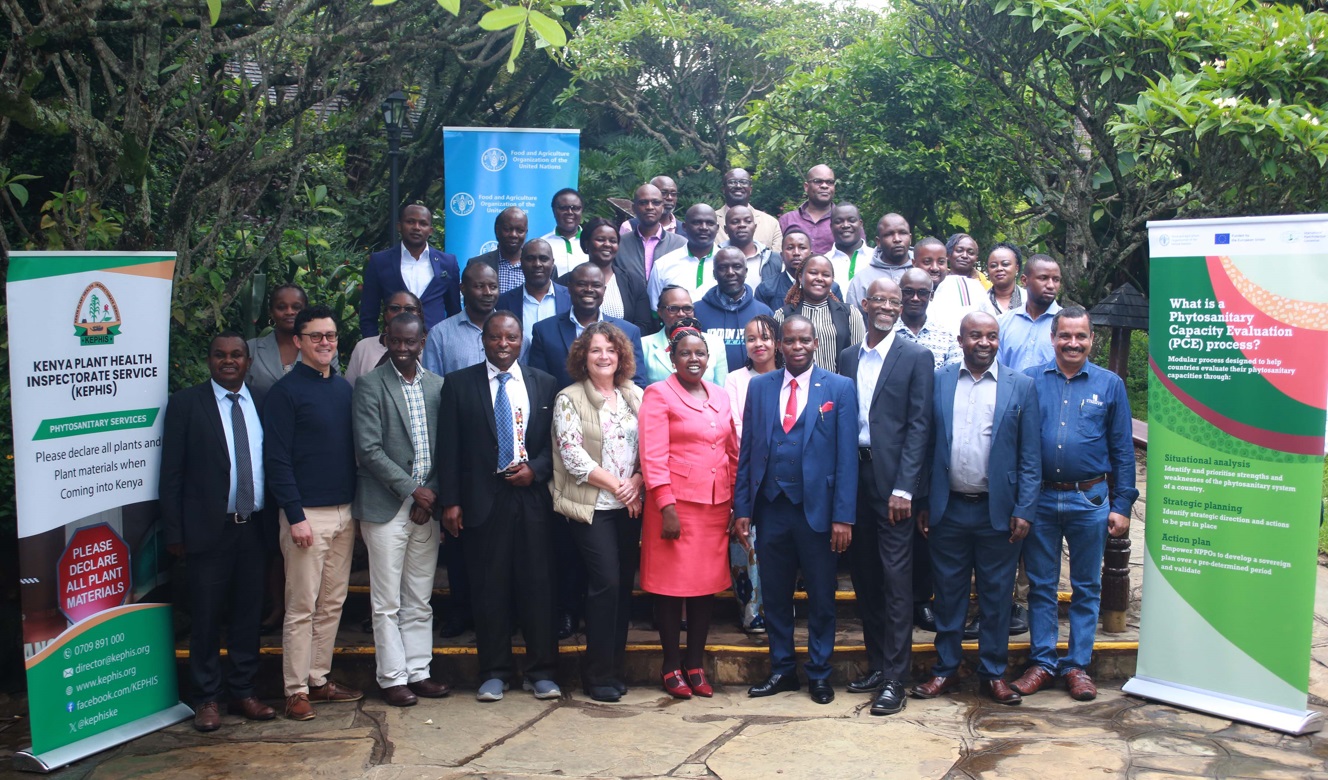SPOTLIGHT - Rethinking and strengthening: Kenya's approach to its phytosanitary system
Posted on Wed, 07 Feb 2024, 13:52

©FAO/Eduardo Soteras
Plant pests pose significant threats to sustainable crop production, agricultural productivity, food security and the livelihoods of millions of people. Through people’s movement and international trade of agricultural products and commodities, pests can be introduced into new territories where they may establish, spread, affect crops and plants, and cause negative economic, environmental and social impacts. Today, the pest problem is just as dire, if not worse than decades ago, exacerbated by global phenomena like climate change. To tackle pests that affect agriculture and harm international trade, countries need robust, efficient, and functional phytosanitary systems with adequate human resources to prevent and manage pests. However, the plant health sector in Africa faces challenges in terms of diagnostics infrastructure, as highlighted in the African Union (AU)’s Plant Health Strategy for Africa.
The end of 2023 marked a turning point in the global effort to strengthen phytosanitary capacity. Coordinated by the International Plant Protection Convention (IPPC) Secretariat and funded by the European Union, a project titled Strengthening of Capacities and Governance in Food and Phytosanitary Control supported nine African countries to access technical assistance to review their national plant health systems. These countries, Eswatini, Djibouti, Kenya, Malawi, Mauritius, Rwanda, Seychelles, Zambia and Zimbabwe, carried out thorough Phytosanitary Capacity Evaluations (PCEs) to help them elevate their phytosanitary capacity to a desired state by applying strategic planning tools.
Located in East Africa and home to the Great Rift Valley, Kenya, as one of the beneficiary countries, validated its PCE in November 2023. The validation exercise involved presenting the PCE outcomes to key stakeholders and planning for the next steps to boost the country's phytosanitary system. Kenya's PCE process was led by the Kenya Plant Health Inspectorate Service (KEPHIS) as the national plant protection organization (NPPO), alongside key public and private stakeholders, supported by international PCE facilitators.
"The PCE is not for everyone. It is quite an intensive process, and it is highly technical," said George Momanyi, PCE National Coordinator in Kenya. "We really benefitted from the international facilitators who understood how to shepherd the process. For myself and my colleagues in KEPHIS, it has been an opportunity, an eye opener for all of us", he added.
Kenya's steady progress to phytosanitary excellence
George Momanyi's words reflect Kenya's history of undertaking PCE processes. In 2002, supported by the IPPC Secretariat, Kenya initiated a PCE process as part of the National Strategic Plan. This enabled the NPPO to identify several areas for improvements in the national phytosanitary system, particularly, diagnostic capacity, pest risk analysis, surveillance, and import and export control. From the first PCE, Kenya was able to develop and obtain funding for a series of programmes and projects that enabled the NPPO to buy equipment and construct laboratories.
Identifying further steps still to be taken, Kenya initiated a second PCE in 2018. This time round, Kenya conducted a more detailed analysis of its phytosanitary capacity, identified weaknesses and developed a robust legal framework that included a Draft Regulation on Import and Export Certification and other national phytosanitary policies aligned with international standards. Recognizing the significance of the past PCEs, KEPHIS welcomed the opportunity presented by the project on strengthening capacities and governance in food and phytosanitary control, to initiate a third PCE. This PCE evaluated the progress made so far in strengthening Kenya’s phytosanitary system and identified new opportunities.

Closing ceremony of the PCE validation mission in November 2023 ©FAO / Fredrick Onyango
This rethinking and strengthening approach to the phytosanitary system aligns with Kenya's economic needs. Agriculture in Kenya contributes 33 percent to the Gross Domestic Product (GDP) and is a source of livelihood (employment, income, and food security) for more than 80 percent of the Kenyan population. Evidently, agriculture is essential to Kenya's food security and safety—a key component of the EU-funded project. According to the World Trade Organization, agricultural exports from Kenya account for 58 percent of all the country's exports, underscoring the importance of ensuring safe trade of pest-free produce.
"Ensuring that there is enhanced safe trade in plants and plant products will lead to increased income for Kenyan people, that will lead to food security", said Theophilus Mutui, Managing Director of KEPHIS, during the November closing ceremony. "Food security cannot happen without food safety and plant health”, he added.
As such, Kenya’s Phytosanitary Capacity Development Strategy outlines a comprehensive plan to advocate for improvement of the NPPO, addressing phytosanitary matters and establishing robust infrastructure and collaboration mechanisms. It focuses on increasing awareness among policymakers, enhancing understanding of phytosanitary issues, and strengthening partnerships to enable research. It also aims at improving the organizational aspects of the NPPO, such as planning strategies, procedures, operational manuals, and human and financial resources. The strategy focuses on strengthening competencies and improving staff remuneration to achieve better results. It also prioritizes strategic planning, stakeholder involvement, and supporting small-scale growers for compliance. The plan also includes infrastructure development, efficient laboratory operations, and a national pest emergency response.
From a technical standpoint, the strategy emphasizes the importance of phytosanitary surveillance, eradication programmes, training and legislative support. It addresses import regulation, traceability, and procedures review, to enhance export certification, documentation, and collaboration. All the activities outlined in the strategy aim at strengthening Kenya's phytosanitary system, in line with relevant international standards and in view of global climate challenges.
Related information:
-
How the IPPC’s Phytosanitary Capacity Evaluation exercises boosted plant health in 2023
-
How Saint Lucia’s PCE put data collection at the heart of plant health
-
How Nicaragua’s new plant health law is helping smallholder farmers
-
Sri Lanka takes on a hands-on approach to strengthen plant health
-
Mauritius concludes evaluation of national phytosanitary system

